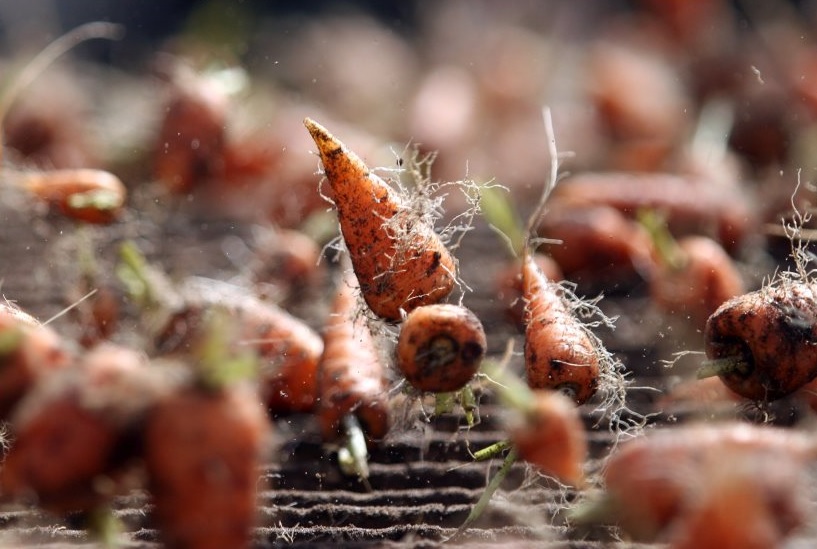
A cooperative of ten farmers based in the Nottinghamshire area have produced the world's first carbon-neutral carrots.
Freshgrowers used a product life-cycle analysis approach to calculate the carbon footprint of its Chantenay carrot production from field to packhouse.
The co-op supplies the premium carrots, grown within 15 miles of the packhouse, to supermarkets and catering customers across the UK.
Data revealed an impressively low level of greenhouse gas emissions (GHGs) from the production and harvesting of the 2021/22 Chantenay crop, at just under 363 tonnes of carbon equivalent (CO2e) for 12,500 tonnes of carrots.
That's a carbon footprint of just 0.03 grams of CO2e per kilogram of carrots.
To put that into perspective, the average carbon footprint of a kilogram of beef is 60kgCO2e, bananas 0.7 kgCO2e, eggs 4.5kgCO2e and milk 3kgCO2e1.
The largest source of GHG emissions from Chantenay production overall was the fuel used in field operations (77%).
The remaining emissions produced by fertiliser, crop protection products and the incorporation of crop residues into the soil.
Martin Evans, managing director of Freshgrowers, said this was the final step in a long process of carbon reduction for the farmer cooperative.
"Chantenay may be small, but we have big sustainability plans for our carrots and are very proud of our carbon neutral status.
"Growing carrots in and around the Sherwood Forest landscape character area, we have always taken a pride in soil conservation, provision of habitat for farmland birds and insects, and sympathetic hedgerow management.
"With our carbon neutral status and new sustainability plan, we are seriously upping our game to deliver even more for the environment from the production of our carrots."
The carbon measurement and offset exercise will be repeated annually, with the next audit due in spring 2023.
